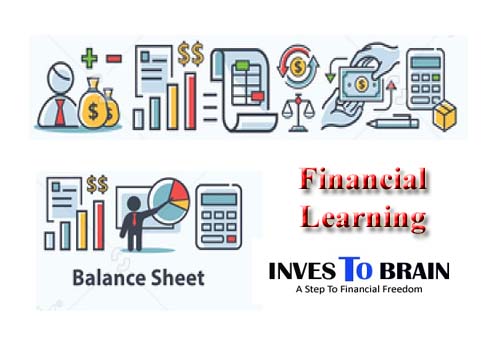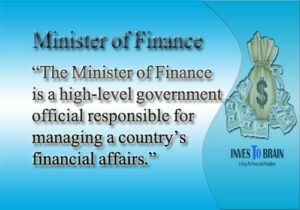Financial learning refers to the process of acquiring knowledge and skills related to managing, investing, and understanding financial markets and products.
This can include understanding financial statements, budgeting and saving, investing in stocks and bonds, retirement planning, and understanding various financial products such as insurance and mortgages.
Financial learning is important for individuals to make informed decisions about their money and reach their financial goals.
Educators, organizations, community groups, businesses & policymakers are working hard to take the issue of financial literacy
In front of the world, they are well-informed people about financial learning benefits. The issue of financial literacy goes away only through financial learning.
A financially literate person can make better decisions for their financial security, their family, and their financial well-being.
Financially educated families are better able to contribute to the economic development of society.
So, Financial learning is not only important for individuals but also it is important for the whole society, The benefits of financial well-being make life stable, and happier and give satisfaction.

What is financial learning or study
Financial learning is the process of acquiring knowledge and skills related to managing, investing, and understanding financial markets and products. This can include a wide range of topics, such as:
- Understanding financial statements: This includes reading and interpreting balance sheets, income statements, and cash flow statements, which provide information about a company’s financial health.
- Budgeting and saving: This involves creating a plan for how to manage and save money effectively, taking into account regular expenses and long-term financial goals.
- Investing: This includes understanding different types of investments, such as stocks, bonds, mutual funds, and real estate, and how to evaluate the risk and return of different investment options.
- Retirement planning: This includes understanding various retirement savings options, such as 401(k)s and IRAs, and creating a plan to ensure that one will have enough money to live on during retirement.
- Insurance: This includes understanding different types of insurance, such as life, health, and property insurance, and how to evaluate the coverage and costs of different options.
- Taxation: Understanding the tax laws and regulations, how to file taxes, and how to minimize tax liabilities.
- Credit and debt management: Understanding credit scores, managing credit card debt, student loans, and other forms of debt.
Financial learning is important for individuals to make informed decisions about their money and reach their financial goals. It helps individuals to understand how to save, invest and grow their wealth, as well as protect it.
It also helps to understand how to access credit and manage debt, and how to plan for retirement and other long-term financial goals. Additionally, it helps to make informed decisions about insurance and taxes.
Benefits of Financial Learning
Financial learning will make you financially literate, financially literate people can make sound financial decisions and can improve their standard of living to increase their financial stability.
There is a list of the top 10 benefits of financial learning :
- Effective management of money and debt.
- Ability to make a better financial plan.
- Ability to make sound financial decisions.
- Effective creation of a structured budget.
- Financial literacy reduces financial stress and anxiety.
- Greater equipped to reach financial goals.
- Better decision-making when selecting insurance, loans, investments, and using a credit card.
- Reduction of expenses through better regulation.
- Financial secure families are better able to contribute to society’s economic development.
- Financial learning help to understand the financial product and make a better decision on retirement option.
There are some more benefits of Financial Learning –
Financial learning can bring many benefits to individuals, including:
- Better financial decision-making: By gaining knowledge and skills related to financial management, investing, and understanding financial markets and products, individuals are better equipped to make informed decisions about their money, which can lead to greater financial security and stability.
- Improved money management: Understanding budgeting and saving techniques can help individuals better manage their money, leading to greater control over finances and the ability to reach financial goals.
- Increased wealth: Investing knowledge can help individuals identify profitable investment opportunities and make informed decisions, which can lead to increased wealth over time.
- Reduced financial stress: Financial learning can help individuals plan for retirement and other long-term financial goals, providing greater peace of mind and reducing financial stress.
- Better insurance and tax management: Understanding insurance and tax laws can help individuals make informed decisions about coverage and minimize tax liabilities, which can lead to greater financial protection and savings.
- Increased credit and debt management: Understanding credit scores and how to manage credit card debt and other forms of debt can lead to improved credit ratings and greater financial stability.
- Ability to navigate complex financial products: With the knowledge and skills gained through financial learning, individuals are better equipped to navigate the complex financial products and services available, such as mortgages, loans, and investment opportunities.
- Empowerment: Financial learning helps individuals to take control of their financial lives and make informed decisions about their money, which can lead to a sense of empowerment and greater financial independence.
Overall financial learning can help individuals to improve their money management, increase their wealth, reduce financial stress, and make better financial decisions.
It can be achieved through various sources like books, seminars, online tutorials, financial advisors, and financial literacy programs.
Importance of Financial Learning
It’s very important in life to invest in yourself first like become financially literate by enrolling in a financial course that can guide you to understand the basics concept of finance and then you can continue your learning through financial books and blogs.
A financially literate person improve life standard by making good financial decision in life and reducing financial anxiety and making a proper financial plan to achieve a financial goal.
Thus, financial learning is very important to communities as well because financially literate families contribute economically to society.
In the 21st century financial marketplace is very complex which is the reason financial literacy comes to light too much.
Financial learning teaches us how to use new financial technologies along with making sound financial decisions in an informed manner.
50 years back bank managers knew the product of a bank, you simply open an account in a bank.
It means the product choices are simple but now there are several product choices in the bank and you can easily know the best product for you just because of the internet.
Financial learning is important for a variety of reasons, including:
- Financial security: By gaining knowledge and skills related to financial management, investing, and understanding financial markets and products, individuals are better equipped to make informed decisions about their money, which can lead to greater financial security and stability.
- Achieving financial goals: Understanding budgeting and saving techniques can help individuals better manage their money and reach their financial goals, such as saving for a down payment on a house or paying off credit card debt.
- Building wealth: Investing knowledge can help individuals identify profitable investment opportunities and make informed decisions, which can lead to increased wealth over time.
- Planning for retirement: Financial learning can help individuals plan for retirement and other long-term financial goals, providing greater peace of mind and reducing financial stress.
- Making informed decisions: Understanding insurance and tax laws can help individuals make informed decisions about coverage and minimizing tax liabilities, which can lead to greater financial protection and savings.
- Improving credit and debt management: Understanding credit scores and how to manage credit card debt and other forms of debt can lead to improved credit ratings and greater financial stability.
- Navigating complex financial products: With the knowledge and skills gained through financial learning, individuals are better equipped to navigate the complex financial products and services available, such as mortgages, loans, and investment opportunities.
- Empowerment: Financial learning helps individuals to take control of their financial lives and make informed decisions about their money, which can lead to a sense of empowerment and greater financial independence.
- Financial literacy: Financial literacy is a key aspect of financial learning, it is important for individuals to understand the basic concepts of money management, budgeting, saving, credit, and investing, in order to make informed financial decisions.
In summary, financial learning is important for achieving financial security, reaching financial goals, building wealth, planning for retirement, making informed decisions, improving credit and debt management, navigating complex financial products, and empowering individuals to take control of their financial lives.
It is a life-long learning process that enables individuals to make better financial decisions, achieve their financial goals, and improve their overall financial well-being.
The financial marketplace is changing very rapidly so newcomers have to take care of their financial health.
Boosting your financial learning
There are some ways to improve your financial learning and improve your capacity of making sound financial decisions independently.
Reading Financial Literacy Books: One of the best options to improve your financial learning by reading Financial Literacy books.
Financial books are the best tools or resources which open your mind and change your mindset about money.
Today lots of financial literacy books are available which are the best for the overall financial development of a person.
Business depends on finance and how to get the best opportunity to invest in the business and also can learn from other’s mistakes.
Financial Literacy By Financial Learning
Financial literacy is an antidote to the increasing complexity of financial products, so financially literate people can make sound financial decisions. Studies show financial literacy has a stronger association with financial behaviors.
Financial behaviors mean making sound financial decisions and understanding the difference and finding the best financial product.
The importance of financial literacy is now addressed by many influencers, motivational speakers, and experts because they know financial education can add value in life and people need financial learning to make better their life.
When we discuss financial literacy, generally we refer to a set of skills that allow people to manage their money wisely, a set of skills like building a budget, making sound financial decisions, and finishing bad habits that remove money from your pocket.
The basic concept of financial literacy is to understand numeracy like calculating interest rates know learning about balance sheets etc.
The broader concepts of financial literacy also make better financial decisions about their financial matter and understand the relationship between their own finance and the economy.
FAQ
How do I start financial Learning?
What do you learn in finance?
1. Budgeting and Planning.
2. Saving.
3. Leverage.
4. Investing.
5. Loan.
6. Difference between assets and liabilities.
After understanding the basic principle of finance you should read a financial book like Rich Dad Poor Dad, Financial blogs and newspapers to enhance your financial knowledge.
You can read more about financial learning click the link below…


Thanks for sharing. I read many of your blog posts, cool, your blog is very good.